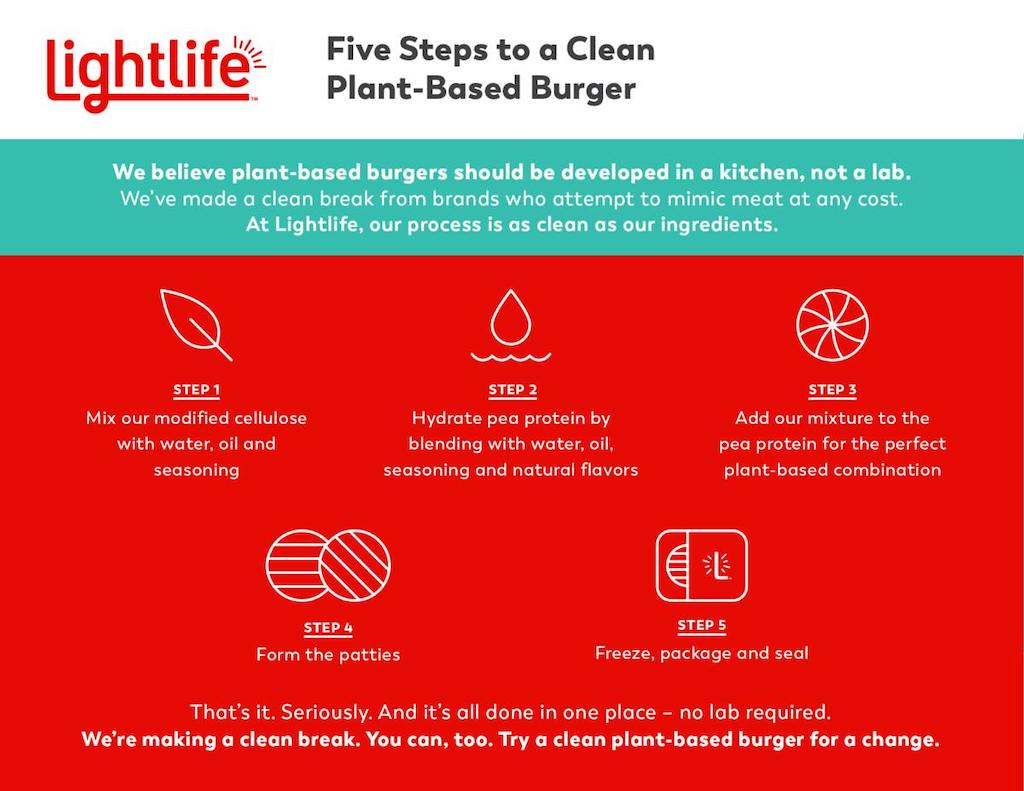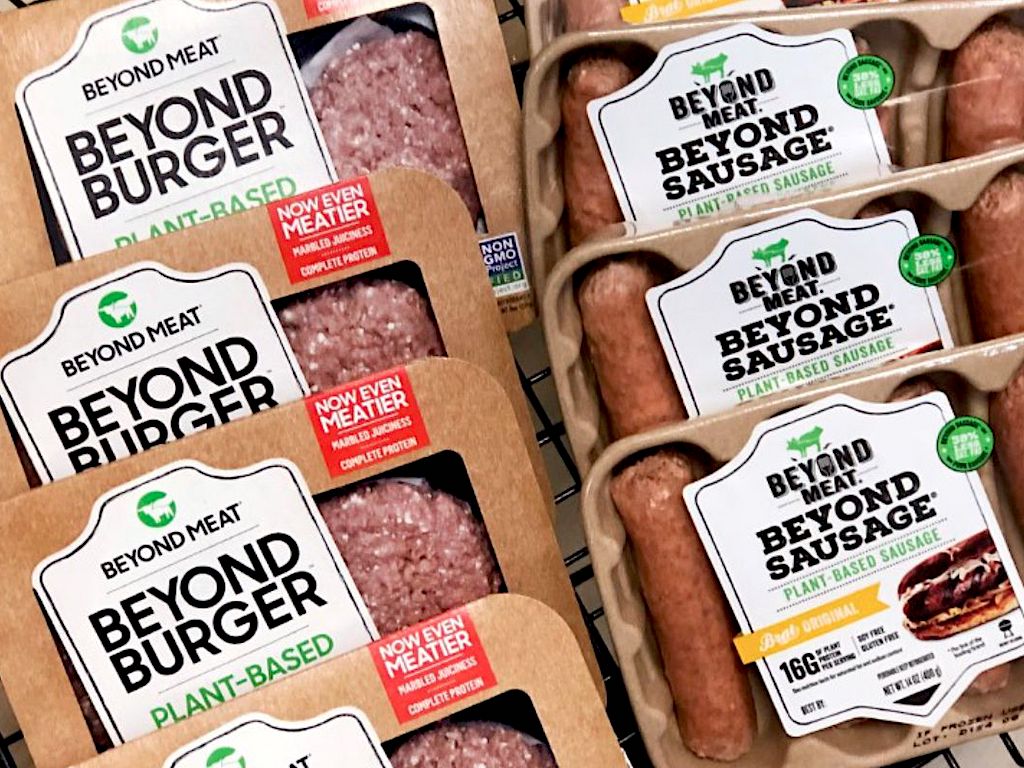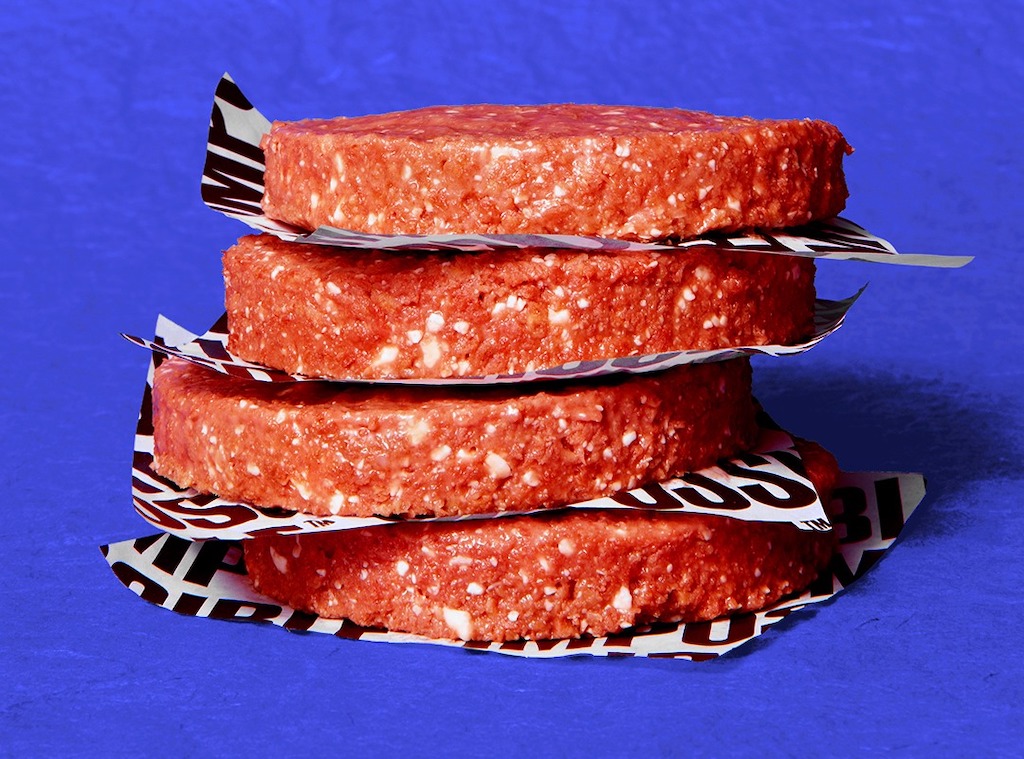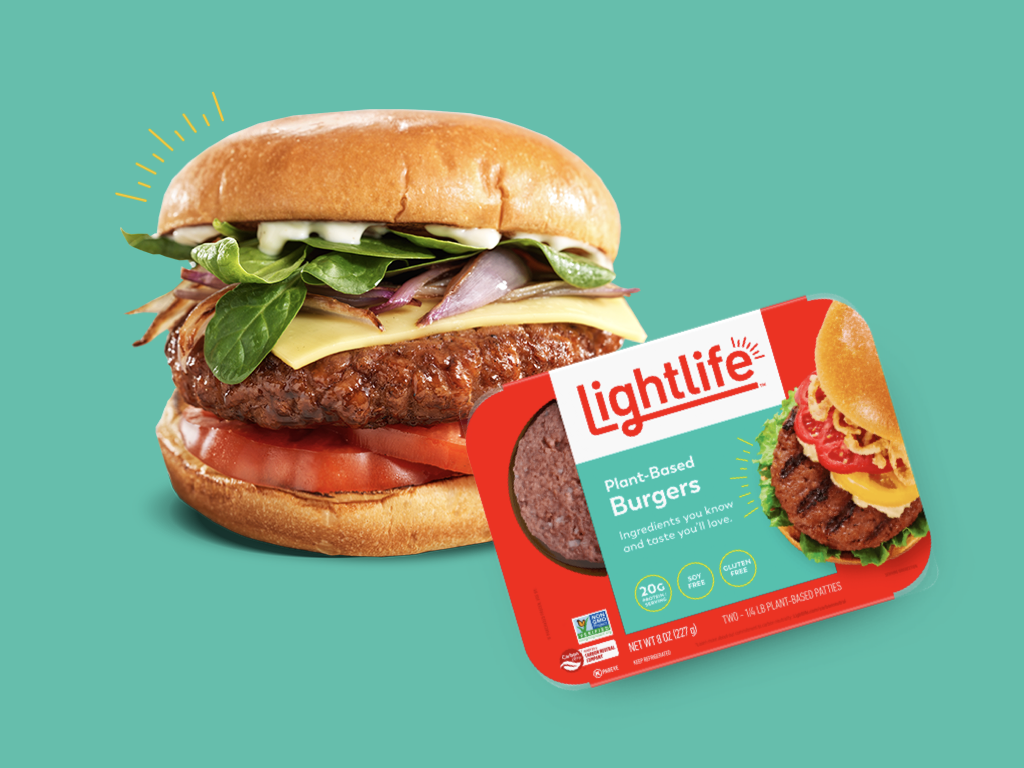7 Mins Read
A salty debate has erupted amongst the netizens of the plant-based world, with industry watchers, food tech startups and big food names alike all chiming in with their take on the latest controversy: Lightlife Foods, the long-time U.S. plant-based brand headquartered in Turner Falls, Massachusetts just launched a new “Clean Break” campaign promoting its new reformulated vegan patty that boasts just eleven ingredients. As a part of the campaign, the formerly Conagra-owned and now Maple Leaf Foods-owned brand went out of its way to distinguish itself from leading plant-based meat makers Beyond Meat and Impossible Foods, criticising their long ingredient labels and suggesting they use ingredients that “just aren’t necessary”. A range of experts and pundits quickly weighed in on social media, many of them defending the next-gen food techs targeted by the campaign. If you need a primer, here’s what went down.
What did Lightlife actually say?
Lightlife kicked off its “Clean Break” campaign with a bang thanks to an open letter addressed to Beyond Meat & Impossible Foods, which was advertised on major newspapers including The New York Times and Wall Street Journal. Signed off by Lightlife president Dan Curtis, the letter stated: “Enough with the hyper-processed ingredients, GMOs, unnecessary additives and fillers, and fake blood.”

“We’re making a clean break from both of you “food tech” companies that attempt to mimic meat at any cost,” added Curtis, who pointed out that Lightlife’s new burger patty contains just eleven ingredients that are “clean, recognisable, and simple to pronounce.”
He goes on to write, with some wordplay, that his brand is “going beyond, and it isn’t impossible.”
What’s this debate about?
Essentially, the debate is about the healthfulness of the novel “2.0” plant-based proteins that have taken the market by storm in recent years, against long-established meat alternatives or products that are considered based on more whole foods than “scientific” ingredients that Lightlife claims Beyond Meat and Impossible Foods’ products contain.
When we compare the nutritional labels of Lightlife’s new plant-based burger, it does indeed have fewer ingredients – eleven compared to 18 for Beyond Meat and 20 for Impossible Foods (here’s a detailed comparison of both companies’s burger patties). In terms of the overall nutritional profile, the calories for all three burgers are remarkably similar (ranging from 240 for Impossible, 260 for Beyond and 250 for Lightlife), as well as protein levels (20 grams for Beyond and Lightlife, 19 grams for Impossible), and fat levels too (14 grams for Impossible, 17 grams for Lightlife and 18 grams for Beyond). So the main argument appears to be the length of the ingredient list, which is supposed to determine the “clean-ness” of a label.

What are industry experts saying?
A vocal plant-based industry backlash against Lightlife is underway across social media, with the campaign being seen as a move that will fragment a movement whose ultimate goal is to reduce any meat consumption for a better, healthier and more sustainable food system.
David Benzaquen, a consultant and advisor for plant-based food companies and co-founder of Ocean Hugger Foods, wrote to Lightlife in an impassioned Linkedin post that while it is “understandable that as a legacy brand which has helped pave the way for these young companies, it must be frustrating to see them leap ahead,” players like Beyond Meat and Impossible Foods have become successful on grounds of innovation, rather than intentionally driving customers away from long-time plant-based brands.
“Your efforts to fight them for market share make me question if you too are motivated by mission, or the almighty dollar,” added Benzaquen, who concluded with this piece of advice: “To stay relevant as a brand, you can innovate to win on product, and you can show consumers that you’re authentic in your mission. These ads show that you’re neither.”
Meanwhile, Brian Kateman, the founder of The Reducetarian Foundation, a nonprofit organisation advocating for more sustainable diets through the reduction of meat consumption, said in a Facebook post: “I’m saddened that Lightlife has decided to engage in horizontal hostility against Beyond Meat and Impossible Foods when all share a common interest in uniting against factory farming. I hope it will reconsider such campaigns moving forward.”
Your efforts to fight them for market share make me question if you too are motivated by mission, or the almighty dollar.
David Benzaquen, in a post to Lightlife
How did Beyond Meat & Impossible Foods respond?
Responding to Lightlife’s public criticism, a spokesperson for Beyond Meat issued a statement on behalf of the food tech defending its recognisable ingredient list. “If they were clear on our ingredients, they would see that our products are made with simple, plant-based ingredients,” the company said.
“With no GMOs. No synthetically produced ingredients. Our products are designed to deliver the same taste and texture as animal-based meat but are better for you and the planet. We believe it’s the future of food.”

Impossible Foods, whose products do contain GMOs, also responded by publishing a post penned by the brand’s communications team Keely Sulprizio and Rachel Konrad, which pushed back against “misleading” and “false claims” made by Lightlife, a company that Impossible was quick to note is owned by a Canadian meat-industry giant.
“The campaign leans on spurious arguments typically used by the meat industry: Attack Impossible’s products not based on their indisputable quality, nutrition, wholesomeness or deliciousness, but based on the number of ingredients — a logic-defying concept with zero relevance to health or product quality, intended to distract consumers from the obvious inferiority of Lightlife and Maple Leaf’s products,” read the post.
The campaign leans on spurious arguments typically used by the meat industry: Attack Impossible’s products not based on their indisputable quality, nutrition, wholesomeness or deliciousness, but based on the number of ingredients, a logic-defying concept with zero relevance to health or product quality.
Impossible Foods, in response to Lightlife
What does the current scientific evidence say?
Currently, what the science seems to show is that minimising animal protein intake is overall a good thing for our health – whether it be through swapping out meat for “2.0” plant-based meats, legacy vegan meat substitutes or simply whole foods plant protein sources such as beans, legumes, grains and seeds.
This summer alone, two new landmark studies have backed the health benefits of including more whole food plant proteins such as pulses and grains in diets. While researchers from Tehran University found that diets high in plant protein was associated with a reduced risk of developing diabetes, heart disease and stroke, another study conducted by the National Cancer Institute in the U.S. revealed an “inverse association” between higher consumption of plant-based foods and heart disease mortality rates.

On the other hand, research is also showing that novel plant-based meats can also help lower risks of major chronic illnesses. Just a few weeks ago, a study from Stanford Medicine found that participants who ate plant-based meat substitutes instead of animal meat saw a significant reduction in TMAO and “bad” LDL cholesterol levels, both of which are associated with higher risk of various cardiovascular diseases. Though the study was albeit funded by Beyond Meat, the food tech giant was not involved in the research design, conduct or data analysis.
The campaign is detrimental to the greater enemy, which is conventional meat agriculture and the unethical and environmentally destructive systems it upholds.
Sonalie Figueiras in response to the Lightlife campaign
Nonprofit Food Frontier helped bolster the evidence in favour of choosing plant-based meats if the alternative choice is real animal meat. Publishing their findings in a report, the researchers said that except for plant-based mince, which had the same health rating as regular meat mince, all plant-based meat products sampled fared better on multiple health indices.
Commenting on the findings, co-author of the Food Frontier report, Teri Lichtenstein, who is also an accredited practising dietitian, said that consumers can try to differentiate the “better” plant-based meat products by choosing those that have lower amounts of sodium and higher amounts of dietary fibre.
Green Queen Editor-in-Chief Sonalie Figueiras told me that she believes Lightlife should have gone about its product launch in a different way and that “the campaign is detrimental to the greater enemy, which is conventional meat agriculture and the unethical and environmentally destructive systems it upholds, and the idea that ‘all manufactured foods are the enemy’ is an elitist one, but Lightlife has sure gotten a lot of free press.”
August 27 Update: Future Foods Now founder and plant-based investor Michal Klar responded to the controversy by penning an alternative response, with a collaborative and positive tone “Here, I fixed it for you: Lightlife’s letter to Beyond Meat and Impossible Foods” on Linkedin and it’s worth a read, below an excerpt.
We are a 41-year old company that is currently owned by Maple Leaf Foods, one of the largest meat producers in North America. At Maple Leaf, we live by our Leadership Values, including “Do what’s right”, “Dare to be transparent” and “Dare to be humble”.
In this spirit of transparency and humility, we wanted to openly share our journey and suggest all companies in this space continue to make efforts to deliver increasingly tastier, more nutritious and planet-friendly food to consumers everywhere.
Here, I fixed it for you: Lightlife’s letter to Beyond Meat and Impossible Foods by Michal Klar
Lead image designed by Green Queen Media.




